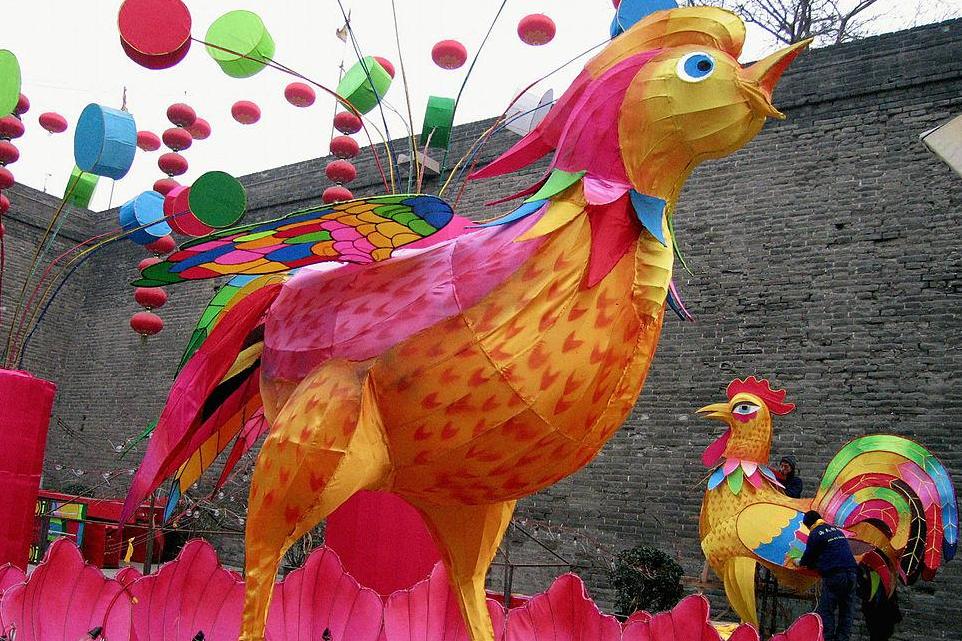Chinese New Year 2017: When is it and how is it marked?
Roughly a sixth of the world celebrate Chinese New Year
Your support helps us to tell the story
From reproductive rights to climate change to Big Tech, The Independent is on the ground when the story is developing. Whether it's investigating the financials of Elon Musk's pro-Trump PAC or producing our latest documentary, 'The A Word', which shines a light on the American women fighting for reproductive rights, we know how important it is to parse out the facts from the messaging.
At such a critical moment in US history, we need reporters on the ground. Your donation allows us to keep sending journalists to speak to both sides of the story.
The Independent is trusted by Americans across the entire political spectrum. And unlike many other quality news outlets, we choose not to lock Americans out of our reporting and analysis with paywalls. We believe quality journalism should be available to everyone, paid for by those who can afford it.
Your support makes all the difference.Chinese communities around the globe are preparing to launch their new year celebrations, the most important holiday in the Chinese calendar.
Starting from 28 January, the colourful celebrations to welcome in the year of the rooster will continue for around two weeks, ending on 2 February.
Here's everything you need to know about the 2017 Chinese New Year:
What is Chinese New Year?
Chinese New Year is the longest national holiday in China and New Year's day is the most important date in the Chinese calendar.
Although China has used the Gregorian calendar since 1912, Chinese New Year is based on the ancient Chinese lunar calendar, falling on the second new moon after winter solstice — meaning it changes each year.
It is pronounced “Gong Xi Fa Cai” in Mandarin and “Gong Hey Fat Choy” in Cantonese, although both are written the same way.
Roughly a sixth of the world will observe Chinese New Year, with celebrations in Taiwan, Singapore and Malaysia, along with other countries with significant Chinese populations.
London and San Francisco both claim to host the largest celebrations outside of Asia.
How is it celebrated?
Many celebrations take place, including parades, dragon dances, reunions and elaborate dinners.
Red clothing is considered essential, as it is said to scare off the mythical monster Nian.
Children are traditionally given red envelopes with money inside which they sleep with under their pillows, which is said to bring them good fortune and happiness.
Cleaning the house on the twentieth day of the second lunar month before the New Year, and subsequent house decorating, are both major rituals in the run up to New Year.
Each day has its own celebration: while on Day 2 it is traditional to visit friends and relatives, on Day 3 people tend to stay at home as it is not seen as auspicious to socialise.
The final day, Day 15, sees the Lantern Festival, where red Chinese lanterns are released into the sky.
What does the year of the rooster mean?
2017 is the year of the tenth Chinese zodiac, the rooster.
The year's of the rooster include 1945, 1957, 1969, 1981, 1993 and 2005.
However, this is the year of the fire rooster.

Those born in 1957 or 2017 are fire roosters, and are considered trustworthy, with a strong sense of timekeeping and responsibility at work.
They are also thought to be talkative, popular in a crowd and loyal.
Their lucky numbers are thought to be five, seven and eight, and their lucky colours gold, brown and yellow.
Fire roosters are recommended to avoid the colour red and their unlucky numbers: one, three and nine.
The rooster will be followed by the dog in 2018 and the pig in 2019.
Subscribe to Independent Premium to bookmark this article
Want to bookmark your favourite articles and stories to read or reference later? Start your Independent Premium subscription today.

Join our commenting forum
Join thought-provoking conversations, follow other Independent readers and see their replies
Comments